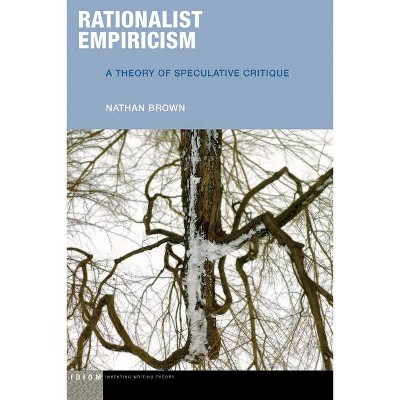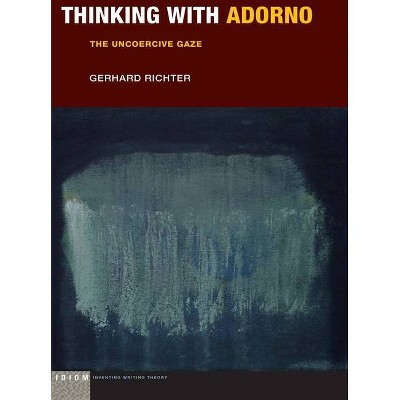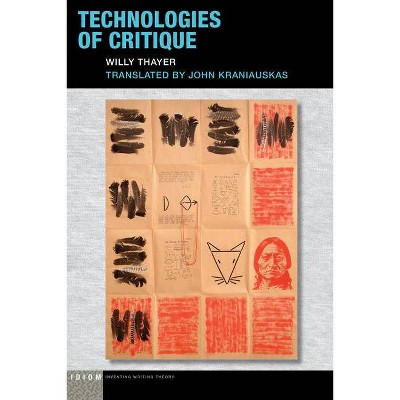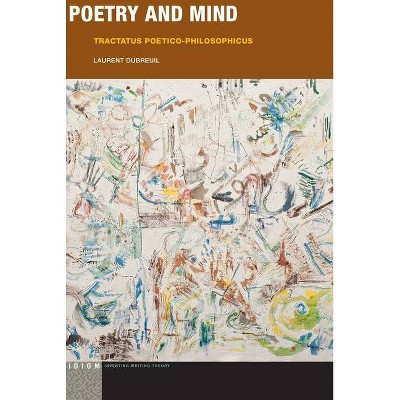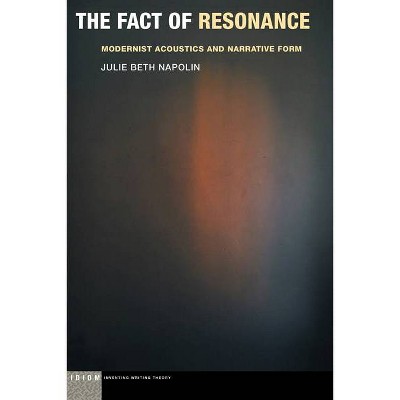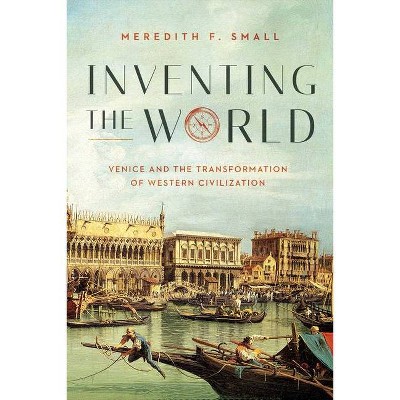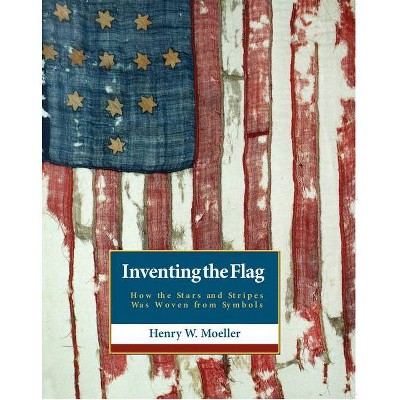The Limits of Fabrication - (Idiom: Inventing Writing Theory) by Nathan Brown (Hardcover)
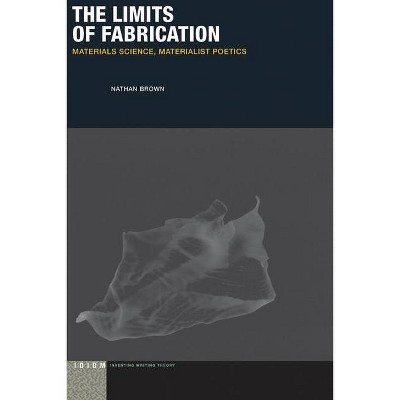
Similar Products
Products of same category from the store
AllProduct info
<p/><br></br><p><b> About the Book </b></p></br></br>The Limits of Fabrication engages anew with traditional understandings of poetry as a practice of making or building, putting this approach to the test and radicalizing its implications by studying models of form and structure in twentieth and twenty-first century materialist poetics alongside recent innovations in materials science and engineering.<p/><br></br><p><b> Book Synopsis </b></p></br></br><p>Poetry, or poiēsis, has long been understood as a practice of making. But how are experiments in the making of poetic forms related to formal making in science and engineering? The Limits of Fabrication takes up this question in the context of recent developments in nanoscale materials science, investigating concepts and ideologies of form at stake in new approaches to material construction. Tracing the direct pertinence of fields crucial to the new materials science (nanotechnology, biotechnology, crystallography, and geodesic design) in the work of Shanxing Wang, Caroline Bergvall, Christian Bök, and Ronald Johnson back to the midcentury development of Charles Olson's "objectist" poetics, Nathan Brown carves out a tradition of constructivist, nonorganic poetics that has developed in conversation with science and engineering. <p/>While proposing a new approach to the relation of technē (craft, skill) and poiēsis (making, forming), this book also intervenes in philosophical debates concerning the concept of the object, the distinction between organic and inorganic matter, theories of self-organization, and the relation between "design" and "nature." Engaging with Heidegger, Agamben, Whitehead, Stiegler, and Nancy, Brown shows that materials science and materialist poetics offer crucial resources for thinking through the direction of contemporary materialist philosophy.</p><p/><br></br><p><b> Review Quotes </b></p></br></br><br>...<i>The </i><i>Limits of Fabrication</i> is a serious and critically acute book... Many readers will be unfamiliar with at least some of the poets here, and Brown makes a compelling case for why they should be read by critics with interests in the intersections between literature and science.-- "The British Society for Literature and Science"<br><br>Brown's work here opens many promising new paths to follow.-- "Radical Philosophy"<br><br>This is one of the very finest works of speculative poetics to emerge in quite some time, and one hopes that its highly creative deviations from the historicist-contextualist hegemony in literary studies will spark equally incandescent acts of theoretical disobedience in its wake.-- "Boundary 2"<br><br>What are the materials of poetic writing? How are they configured? And how are we able to track in and after modernism the way avant-garde poetics stretched the limits of poetry's material form? Nathan Brown's outstanding and challenging <i>The Limits of Fabrication: Materials Science, Materialist Poetics</i> attempts to answer these questions, offering a powerful revisionist literary history of the legacy of modernism's scrutiny of the very matter of poetry.-- "Affirmations"<br><br><i>The Limits of Fabrication </i>brings an essential argument to discussions concerning the end of art. Where Hegel affirms that poetry accomplishes the dematerialization of aesthetic expression by reducing it to linguistic transparency, Brown on the contrary demonstrates that a poem is always a factory, where meaning is fashioned, even if invisibly, through the crystals, quanta, or nanotubes of language. No metaphorical abstraction in this, but the revelation of the elementary technology at work in words. A strikingly singular, beautiful, and important book.<b>-----Catherine Malabou, <i>author of The New Wounded</i></b><br><br>In this ambitious and exciting book, Nathan Brown aligns two practices that occur at the limits of fabrication: one, at play in scenes of reading and writing, involves the poet's ability to structure language mark by mark; the other, at play in materials research and manufacture, involves the nanoscientist's ability to manipulate matter atom by atom. These forms of making open an understanding of the methods, techniques, and procedures that structure the world we now inhabit. Unfolding across five carefully sequenced chapters, the book concludes with a brilliant reading of Mad Science in Imperial City, a volume of poems by the engineer and poet who provides Brown's epigraph and sets the scale for his important expansion of materialist poetics. 'Work nano, ' Shanxing Wang urges, 'think cosmologic.' The Limits of Fabrication shows us how such a feat might be accomplished.<b>-----Adalaide Morris, <i>The University of Iowa</i></b><br><br>Poems are material things. From that simple observation, Nathan Brown teases out startling sequellae: experimental poetry is materials research, and materials science - in its concern with form and organization - is a branch of poetics. In the language of materials science, Brown's synthesis - of poetry, philosophy, and nanotechnology - is imaginative, while his characterizations are rigorous and enlightening.<b>-----Cyrus Mody, <i>Rice University</i></b><br><br>This book is a major achievement for its exposition of nanoscience, for its powerful engagements with Martin Heidegger and Giorgio Agamben on the topic of "life," and for its general analysis of how the figure of the engineer-scientist provides contexts by which to understand what contemporary writers have achieved.<b>---Charles Altieri, <i>American Literary History</i></b><br><p/><br></br><p><b> About the Author </b></p></br></br><br><strong>Nathan Brown</strong> is Canada Research Chair in Poetics and Director of the Centre for Expanded Poetics in the Department of English at Concordia University, Montréal.<br>
Price History
Price Archive shows prices from various stores, lets you see history and find the cheapest. There is no actual sale on the website. For all support, inquiry and suggestion messages communication@pricearchive.us
